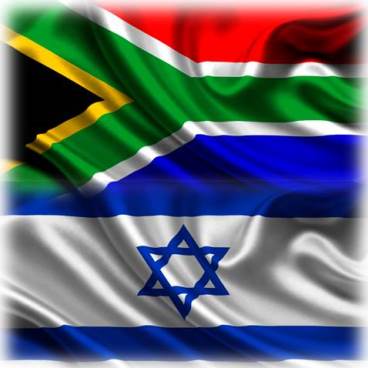
News

Israeli solutions to African problems?
STEVEN GRUZD AND CARMEL RAWHANI
Prime Minister Benjamin Netanyahu visited Ethiopia, Kenya, Rwanda and Uganda in June 2016, met African leaders in New York at the UN in September, and was the first non-African leader to address the Economic Community of West African States (ECOWAS) at their July summit in Liberia.
In October, the first-ever Africa-Israel Summit was due to take place in Lomé, Togo, but was postponed on 11 September due to ongoing violent protests against Togolese President Faure Gnassingbe.
Naturally, Israel’s advances have not gone unnoticed. South Africa was urging a boycott. Morocco hadworked through the Palestinian Authority to squeeze the Togolese to scrap the summit, before the (unrelated) unrest manifested. Observers had predicted a good turnout in Togo.
So, why is Israel targeting Africa now? Will it succeed? And what does this mean for the continent?
In the 1950s and 1960s, Israel Foreign Minister Golda Meir championed building good relationships with newly-independent African countries, through projects in agriculture, defence, medicine, and infrastructure (airport construction, educational training institutions, establishing shipping companies, etc).
Hundreds of experts from MASHAV (the Israeli Foreign Ministry’s Centre for International Co-operation) took part in channelling these efforts through over 30 embassies across Africa.
But these relations took a hit when the 1973 oil crisis struck, followed by the Yom Kippur War. Claiming that Israel had “invaded Africa” due to its incursion into Egypt, the Arab League pressurised the Organisation of African Unity (OAU) to encourage member states to sever ties.
Most embassies were closed, leaving relations only with apartheid South Africa, and its handful of small African allies – Lesotho, Malawi and Swaziland.
So why come back? The Israeli Ministry of Foreign Affairs says there was no official “grudge” towards Africa, believing that the Arab League bullied African countries in 1973.
First, Israel has unashamedly said it seeks to break the powerful African voting bloc in international fora, which has consistently voted against Israel.
Second, Israel needs new allies, with an EU increasingly critical of Israeli settlements and a US under Donald Trump tearing up the global diplomacy rule book (although it remains Jerusalem’s most vital supporter).
Third, there are significant commercial interests in Africa for Israel, for both the state and private firms. Israel, the self-branded “Start-up Nation”, has a wealth of technological products and know-how to improve the lives of Africans, from water use in drought-stricken climates and combating terrorism, to dramatically improving agricultural yields and medical breakthroughs. Yet, Israel’s two-way trade with Africa is currently low:
|
Israel |
|||
|
2014 |
2015 |
2016 |
|
|
Imports from Africa as a percentage of global |
0.46 |
0.43 |
0.36 |
|
Exports to Africa as a percentage of global |
1.98 |
1.65 |
1.46 |
Source: Author’s compilation based on http://www.trademap.org/Index.aspx
Finally, Israel sees a shared history and kinship. “The Jewish people and the people of Africa have a sense of sharing a common destiny. Both have suffered from discrimination and foreign rule. In this way both nations are united by a common historical struggle against colonisation. This struggle can bring us together,” said Avraham Neguise, an Ethiopian-born Likud MP.
Israel is extremely active in humanitarian crises. It was one of the first to send assistance to Sierra Leone after its devastating mudslides in August, and provided assistance to communities ravaged by wildfires in Knysna in South Africa.
Israel’s Africa strategy is already bearing fruit. In September 2016, an International Atomic Energy Agency resolution that would have forced the country to open its undeclared nuclear facilities to UN Inspectors, failed to pass, due (in part) to supportive votes from some African states.
The president of Cape Verde reportedly announced that his country would no longer vote against Israel at the UN (but since backtracked) and Senegal and Guinea, two Muslim-majority countries, both sent non-resident ambassadors to Israel for the first time. Senegal announced support for Israel’s long-standing bid to join the AU as an observer.
If it happens at a future point, the Africa-Israel Summit will crown these initial successes. Over 150 Israeli firms were expected to exhibit in Lomé. High on the agenda was Israel offering its technology as a solution to many of Africa’s problems.
The consequences for the continent are significant. Will Israel be a more committed partner than Africa’s many suitors? Israel seems genuinely interested in sharing its remarkable model for growth and development, and the tools it has honed along the way. Beyond its moral and humanitarian leanings, it is willing to share expertise and resources.
But this will come at a price. Israel wants to dissolve “this giant bloc of 54 African countries that is the basis of the automatic majority against Israel in the UN and international bodies”, said Netanyahu before the ECOWAS summit.
African countries stand to gain significantly in trade, investment, knowledge-sharing and subsequent development. Some leaders are clearly prioritising their own needs over solidarity with the Palestinians, much to the latter’s shock and horror.
Israel’s return to Africa comes at a key moment in history. With the continent’s previously-reliable supporters, the US and EU, scaling back their financial assistance, influence is up for sale.
Israel is a strategic and seasoned buyer in this market, having forged strong relations with Africa before and having learnt from its past mistakes. The Holy Land’s second crack at Africa has already begun to pay off. Given that Israel’s no-nonsense approach to engagement sets it apart from its competitors in this space, it seems destined for further success – despite the best efforts of its detractors.
As for Africa, while development remains an imperative and partners with Israel’s capacity and offerings remain few, it will have to weigh up the costs of breaking up the African bloc against the benefits of making friends with an old enemy.
Steven Gruzd and Carmel Rawhani are analysts at the South African Institute of International Affairs.




